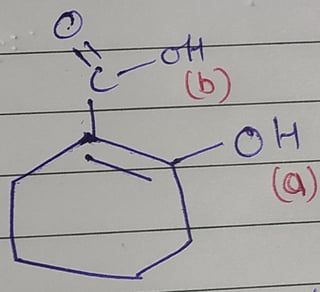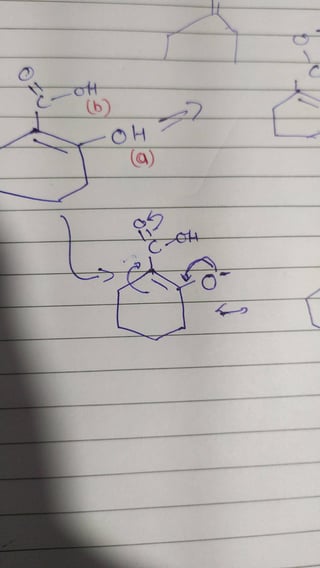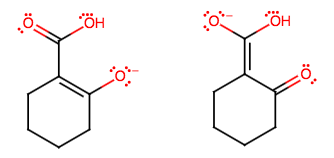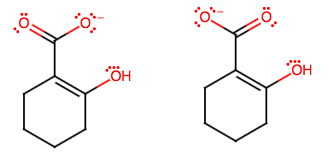I want to compare acidic strength between hydrogen-(a) and hydrogen-(b), I am getting answer as (a) but my classmate and my teacher said that (b) will have more acidic strength. I think (a) should have more acidic strength because it will have more resonance and negative charge will present on oxygen two times
-
$\begingroup$ I think you're either confusing (a) with (b), or the relationship between acid strength and conjugate base stability with resonance. If a conjugate base has resonance, it is more stable (weaker) than a base that does not, and it's parent acid is therefore stronger. $\endgroup$– Sam202Commented Nov 3, 2022 at 17:31
-
$\begingroup$ Yes I know that, I think conjugate base of (a) will be more stable because it will have more resonance and therefore (a) will be more acidic. $\endgroup$– Bhavishya SinghalCommented Nov 4, 2022 at 12:07
1 Answer
Going by stabilization of conjugate base through resonance, the resonance structures of ($a$) would be:
And the resonance structures of ($b$) would be:
So both ($a$) and ($b$) have two resonance structures, or equivalently, two different ways of placing the negative charge on an oxygen atom.
However, in terms of inductive effects, the carbonyl group ($\ce{C=O}$) acts as an electron-withdrawing group, which means it pulls electron density towards it.
If you look closely, in the resonance structures of ($a$), the carbonyl group is farther away from the negative charge than it is on $\;$($b$).
This means that the two oxygen atoms in ($b$) where resonance takes place in ($b$) can share the negative charge more efficiently than the two oxygen atoms in ($a$) where resonance takes place in $\;\;$($a$).
Therefore, the conjugate base of ($b$) is more stable, and it follows that ($b$) is a stronger acid.




